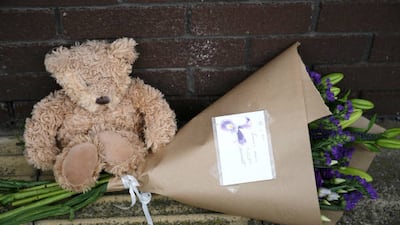The UK's asylum chief has spoken of her pain after a five-year-old Afghan refugee fell to his death from a hotel window shortly after arriving in the country.
Her staff will feel guilty for the rest of their lives after Mohammed Munib Majeedi died last week, said Emma Haddad, director general of asylum and protection at the Home Office.
His family’s new life in Britain was “cruelly shattered and left in pieces” after the tragedy in Sheffield, northern England, she said.
UK asylum chief
Thousands of Afghans who worked with Nato forces in their homeland have been flown to the UK with their families after the Taliban seized power in the country.
Ms Haddad said efforts to get people out of Kabul strained resources in Britain and forced authorities to put people up in hotels.
Mohammed died last Wednesday after falling from the ninth floor of the Sheffield Metropolitan Hotel.
“We are all heartbroken. We have all been in tears,” Ms Haddad wrote in the The Telegraph.
Home Office staff will feel responsible for the accident for ever, she said.
"Many of us are also parents. That could have been my eight-year-old," she said.
“We are not faceless bureaucrats with no empathy. The emotions are overwhelming us.”
A group of Sheffield MPs called for an investigation into Mohammed’s death and whether the hotel was a suitable shelter for refugees.
The UK “must be a safe haven for those fleeing the appalling horrors in Afghanistan", the MPs said.
Ms Haddad said there were safety checks at hotels and that children were given clothes, toys and support from specialist support workers.
UK authorities plan to take in 20,000 Afghan refugees in the next five years, including 5,000 in the first year.
The initiative is separate from the relocation of Afghan interpreters and other civilian staff who worked for British forces in Afghanistan.


